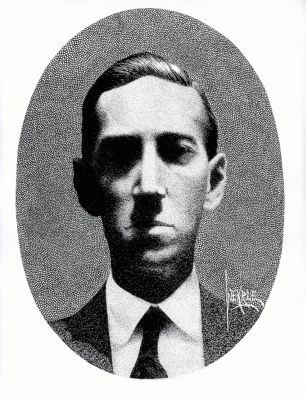To begin, an excerpt from 20th century master of horror H.P. Lovecraft‘s The Case of Charles Dexter Ward:
Charles Ward was an antiquarian from infancy, no doubt gaining his taste from the venerable town around him, and from the relics of the past which filled every corner of his parents’ old mansion in Prospect Street on the crest of the hill. With the years his devotion to ancient things increased; so that history, genealogy, and the study of colonial architecture, furniture, and craftsmanship at length crowded everything else from his sphere of interests… The gaps of information which the alienists noticed were all related to modern matters, and were invariably offset by a correspondingly excessive though outwardly concealed knowledge of bygone matters as brought out by adroit questioning; so that one would have fancied the patient literally transferred to a former age through some obscure sort of auto-hypnosis…
All his final efforts were obviously bent toward mastering those common facts of the modern world which had been so totally and unmistakably expunged from his brain… it was clear to all who watched him that his whole programme of reading and conversation was determined by a frantic wish to imbibe such knowledge of his own life and of the ordinary practical and cultural background of the twentieth century as ought to have been his by virtue of his birth in 1902 and his education in the schools of our own time. Alienists are now wondering how, in view of his vitally impaired range of data, the escaped patient manages to cope with the complicated world of today; the dominant opinion being that he is ‘lying low’ in some humble and unexacting position till his stock of modern information can be brought up to the normal. (read the entire story here)
This section seemed to capture the antiquarian sensibility, especially in regards to positionality and objects of study, and the difficulty of meshing research (or rather, academic affections) with praxis. As Ward struggles to catch up on modernity and to make up for lost time, as it were, after the years he has spent studying nothing for the past, his condition becomes an allegory for the permanent scholar: the individual that is permanently detached from reality, exhibiting academic objectivity to excess, and to a point where they cannot longer utilize their society’s entrenched tools for communication. This passage reminded me of our own discussions of academic isolationism, and how archaeologists’ fascination with the past risks being completely insular and self-serving if we forget our debt and our inherent connection to others around us. Ward, as Lovecraftian characters are wont to do, is unfortunately beyond such redemption and is condemned to an institution (albeit, largely for his dealings in the occult, as, once again, Lovecraftian characters are wont to experiment with.)
The same edition (The Call of Cthulhu and Other Dark Tales [Barnes and Noble, 2009]) includes a serial called Herbert West: Reanimator, about a mad scientist obsessed with bringing the dead back to life. As archaeologists, are we not ourselves reanimators of some sort, bringing life back into the dark and dusty corners of subterranean societies? Our act of revitalization is not one of paternalistic guidance (one should hope!), but an act that restores a site to its former glory– a glory wholly its own, completely untainted by the reanimator’s own visions– and re-validates its inclusion into the world of the living.


